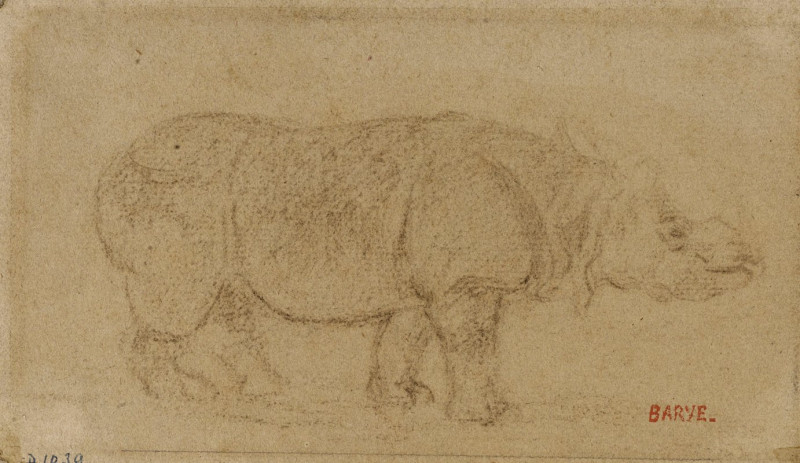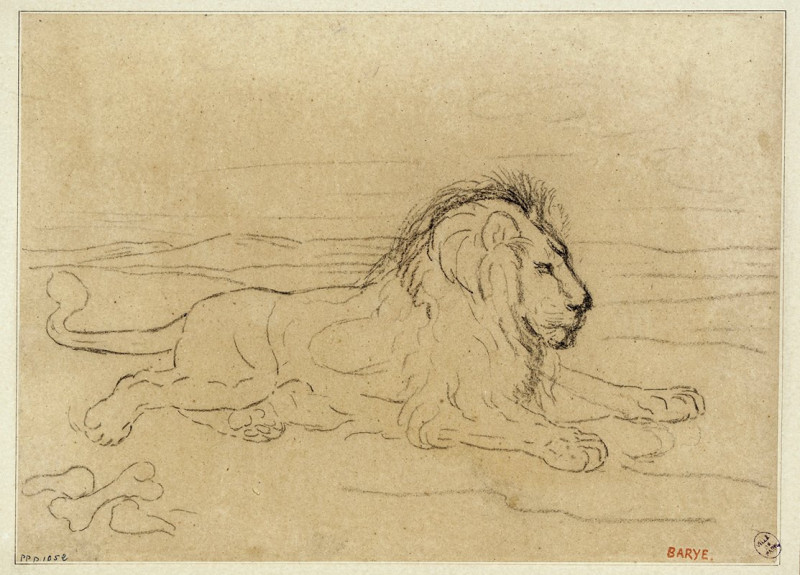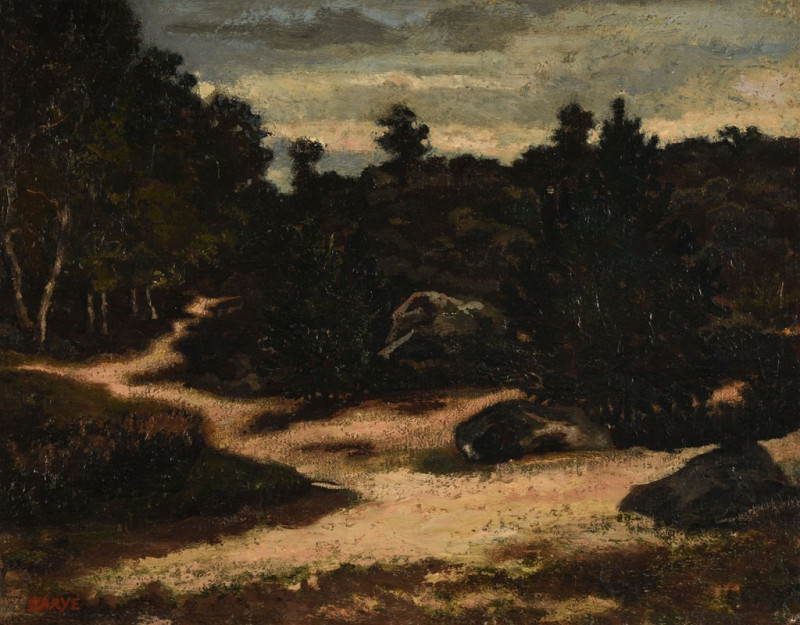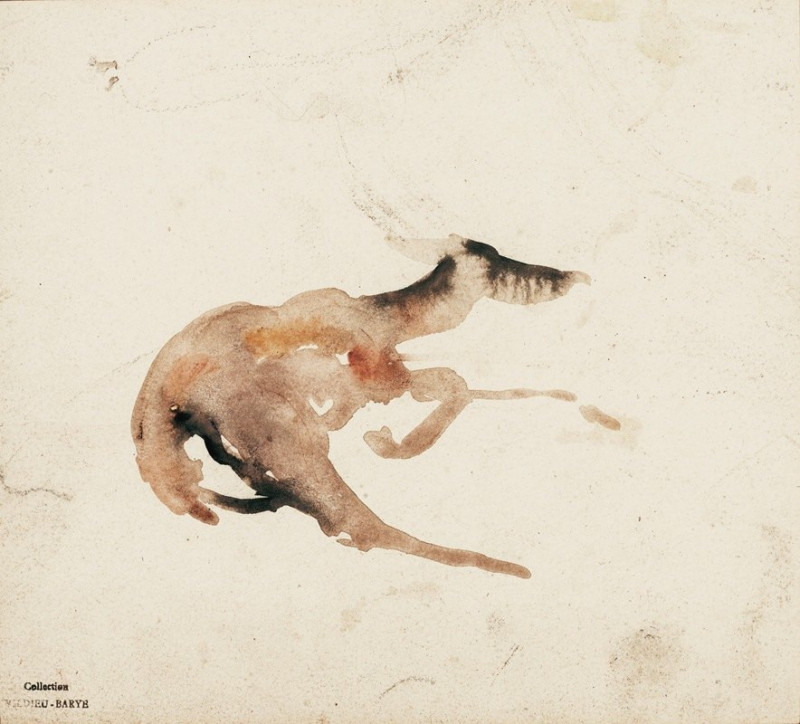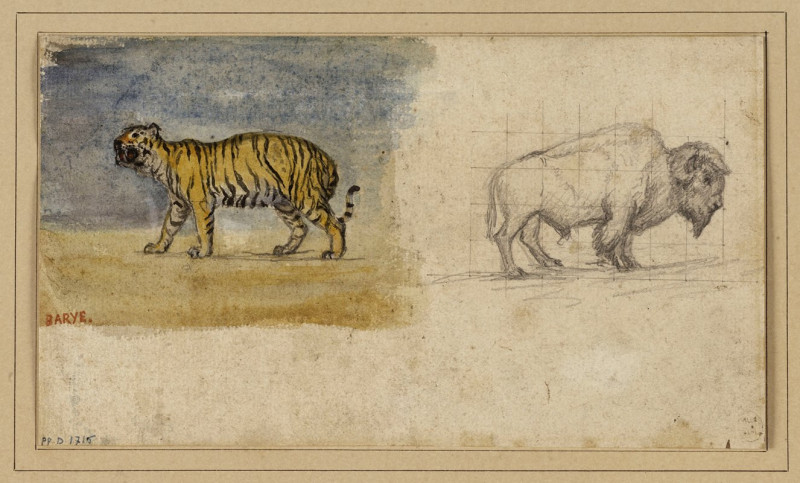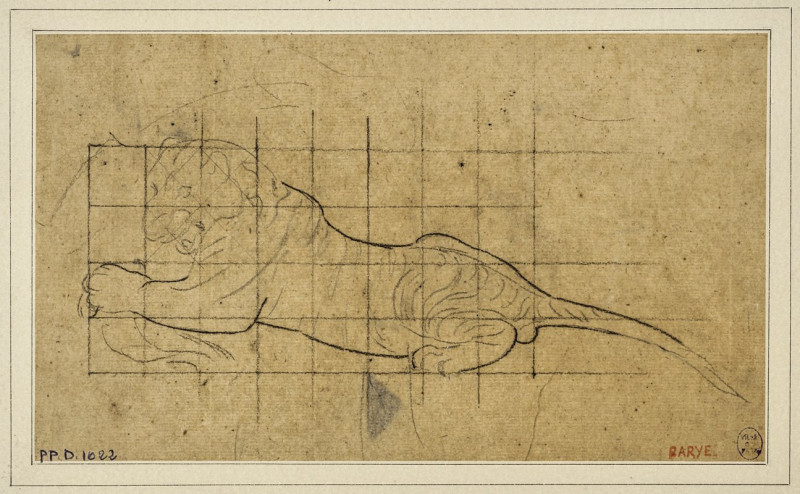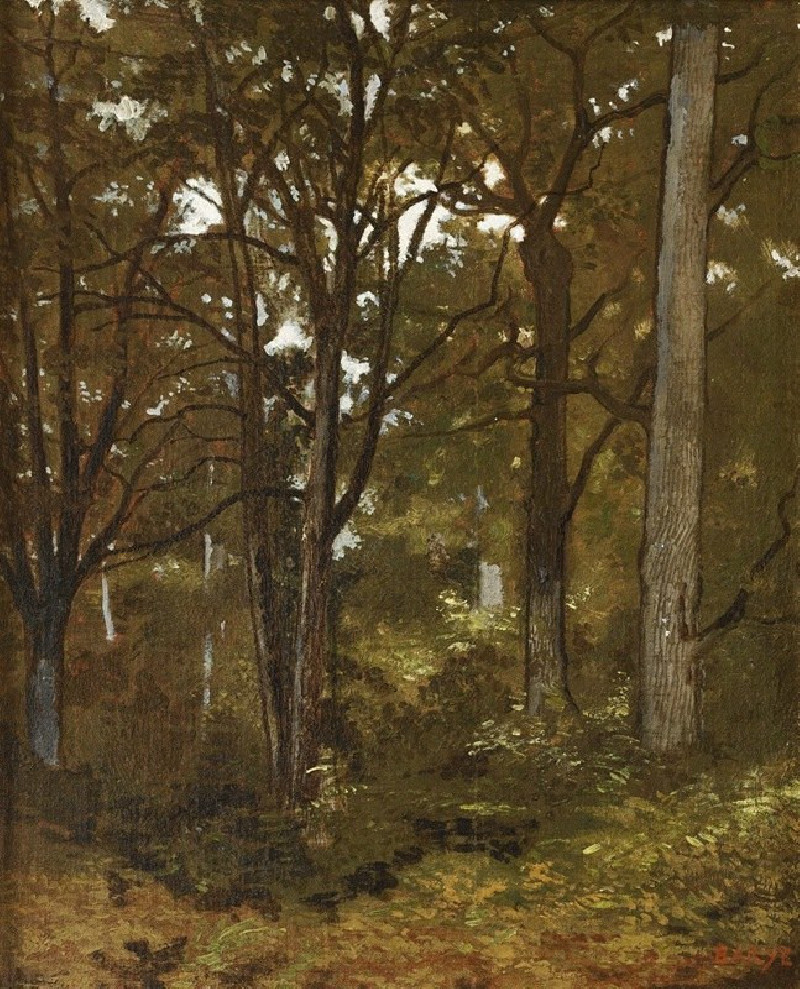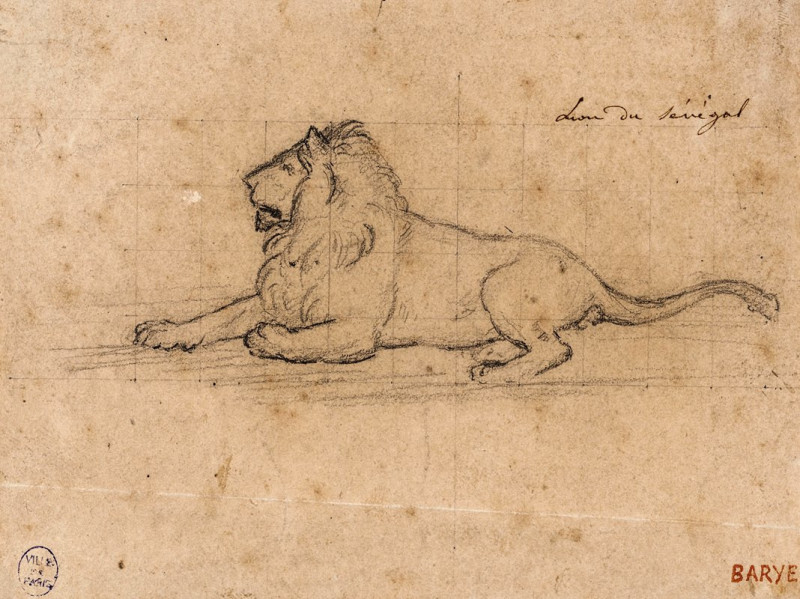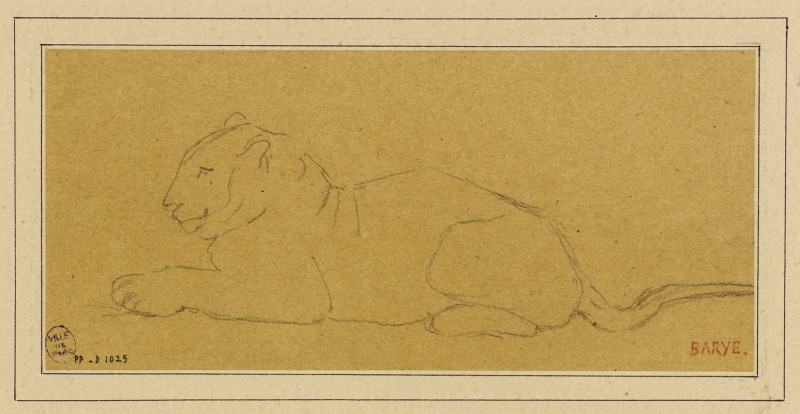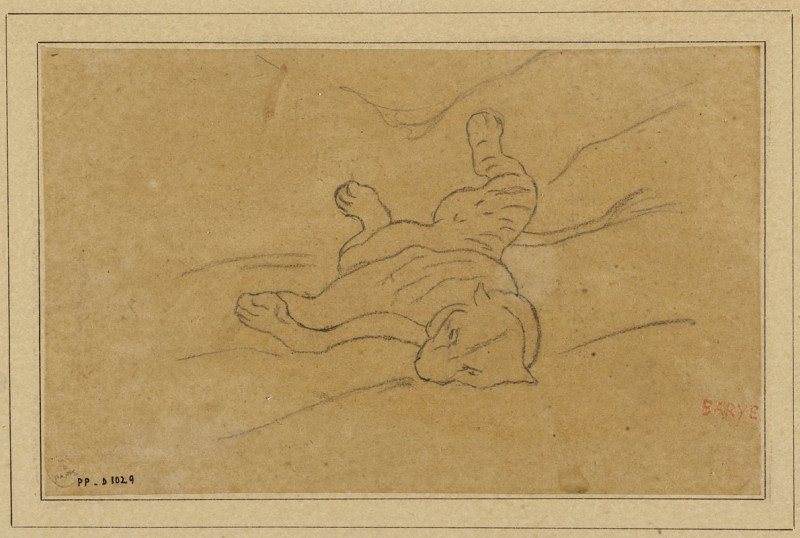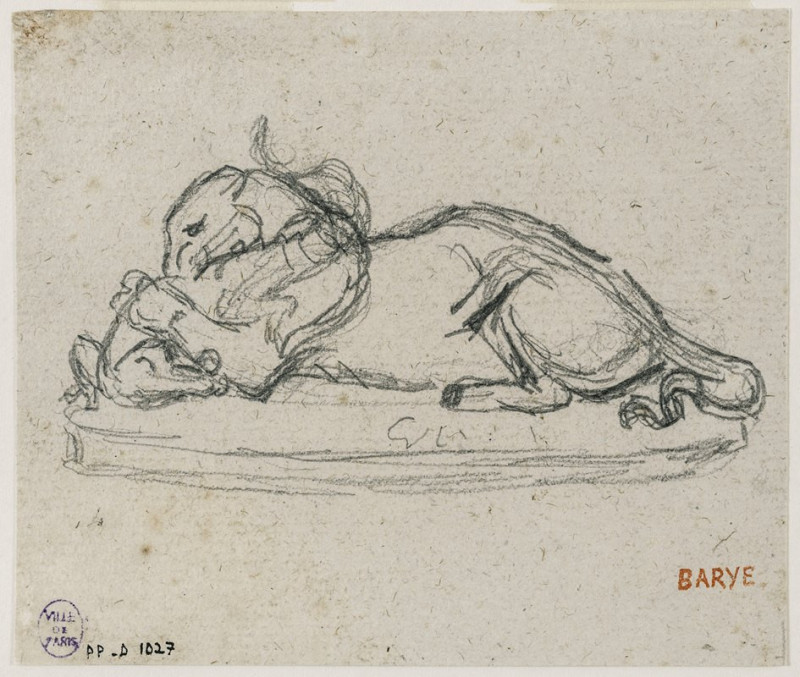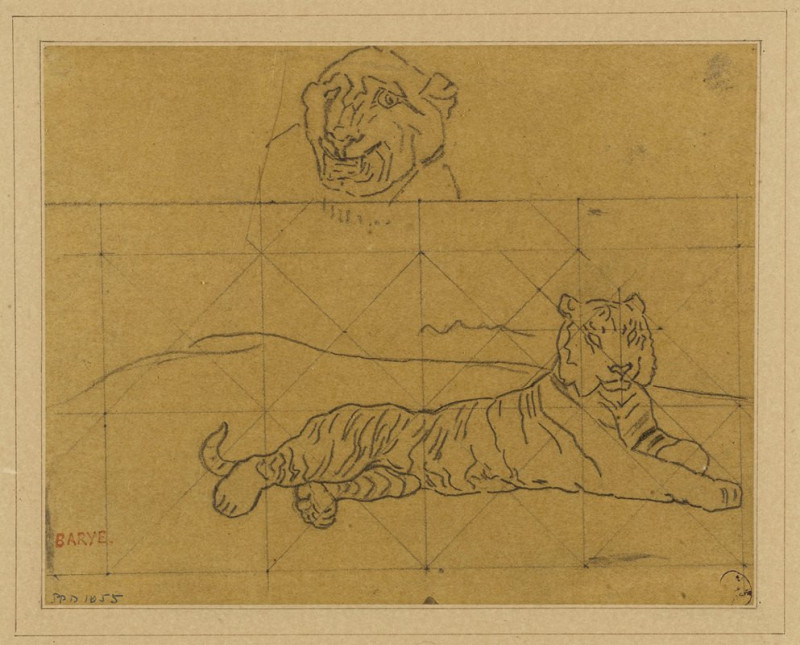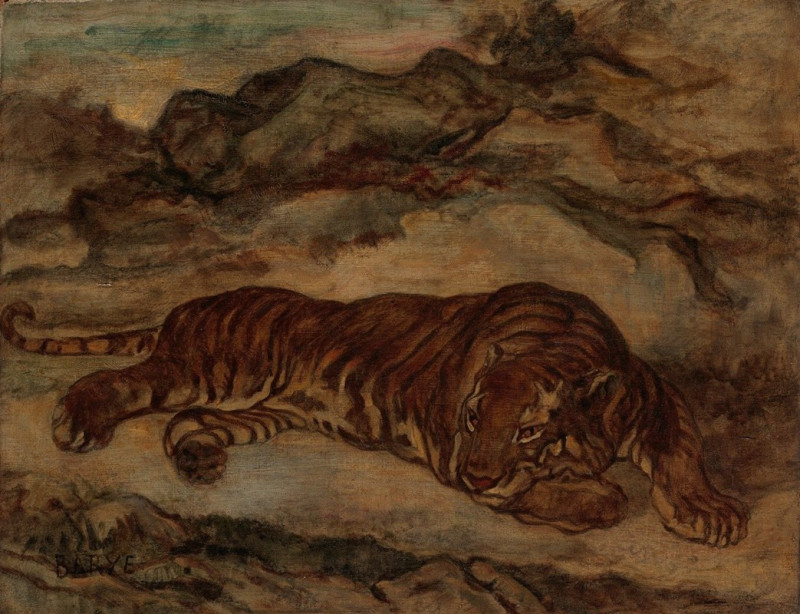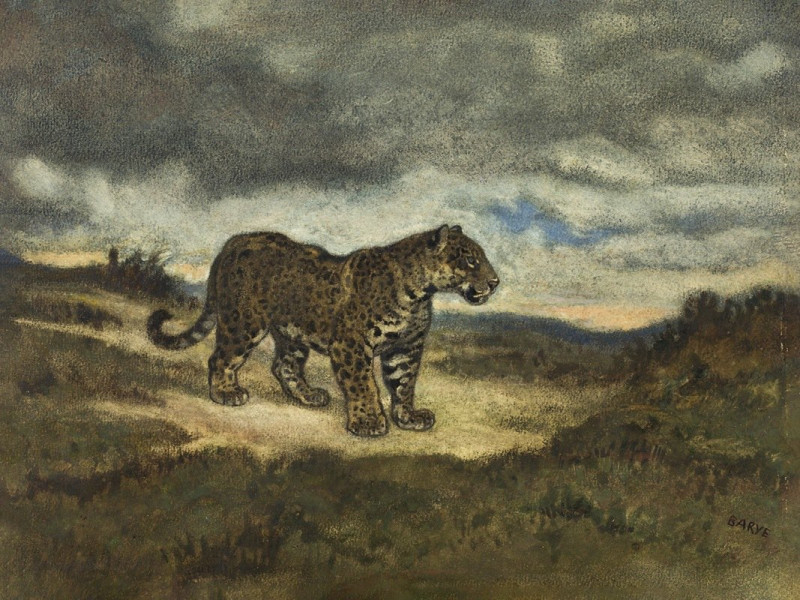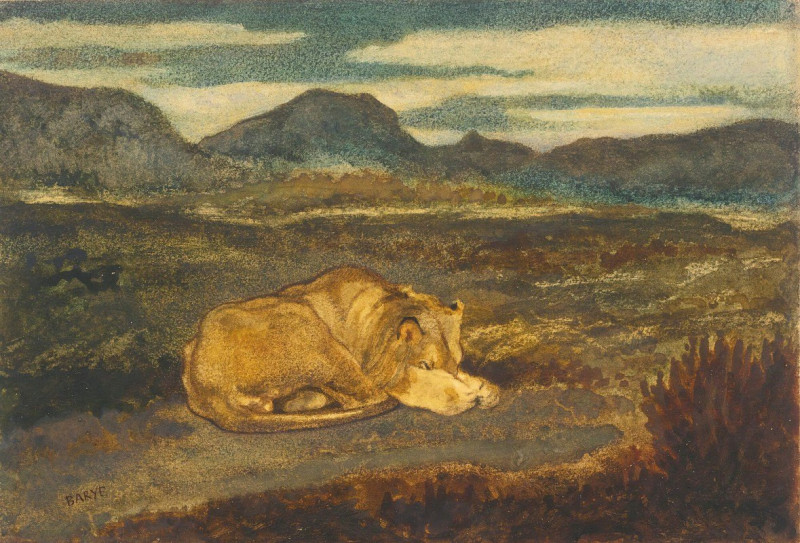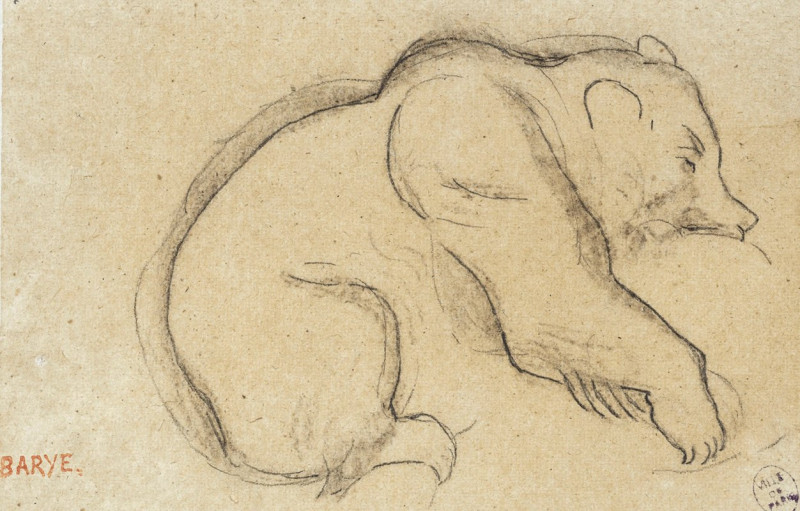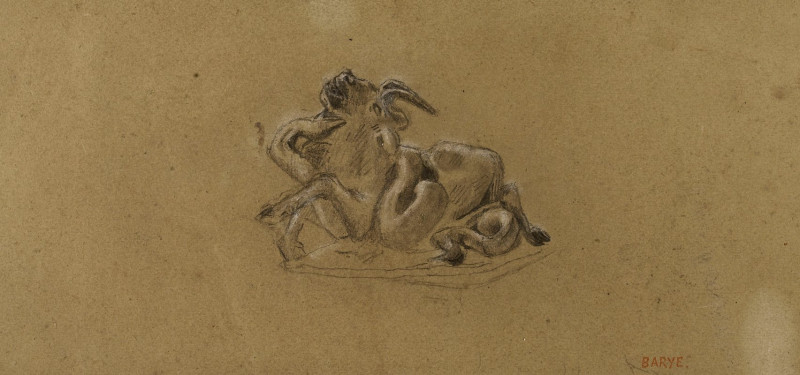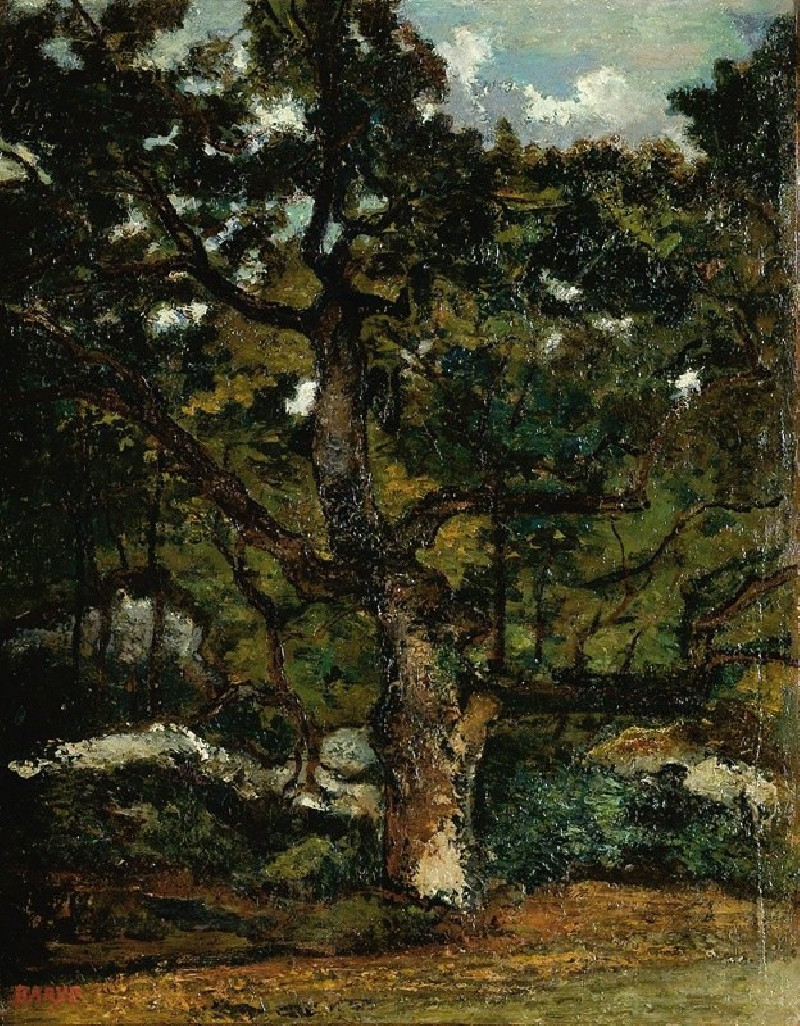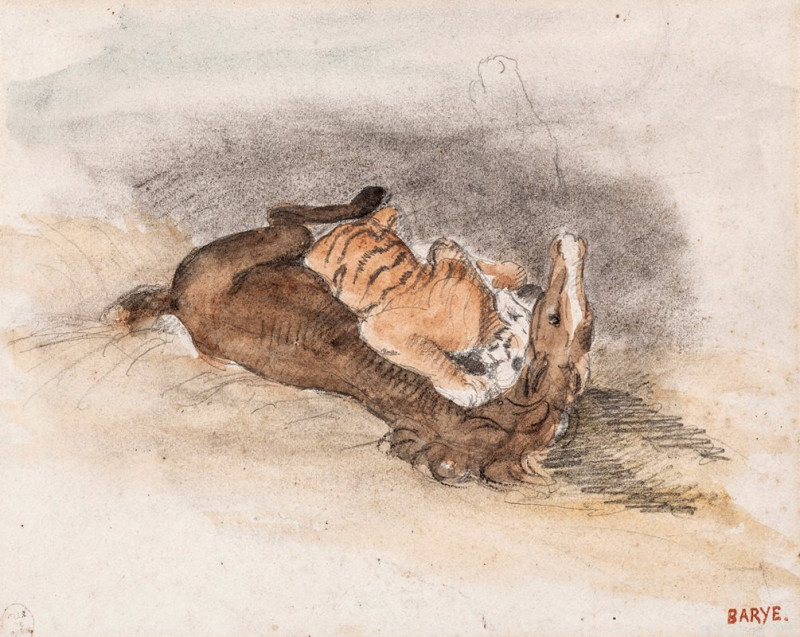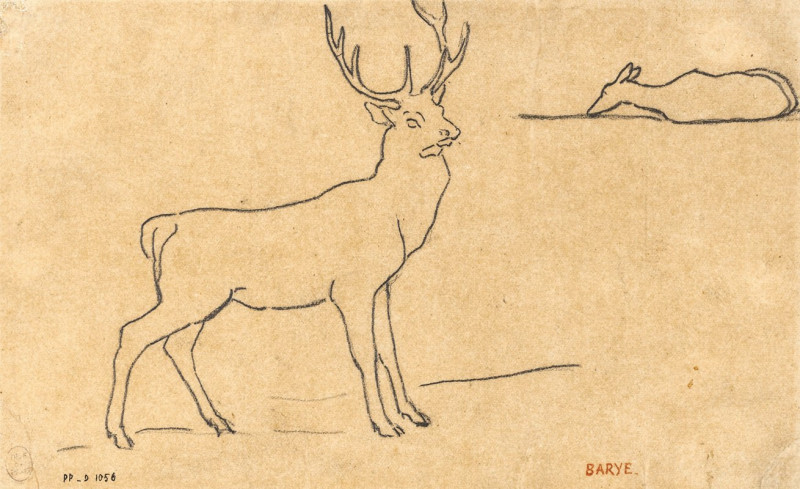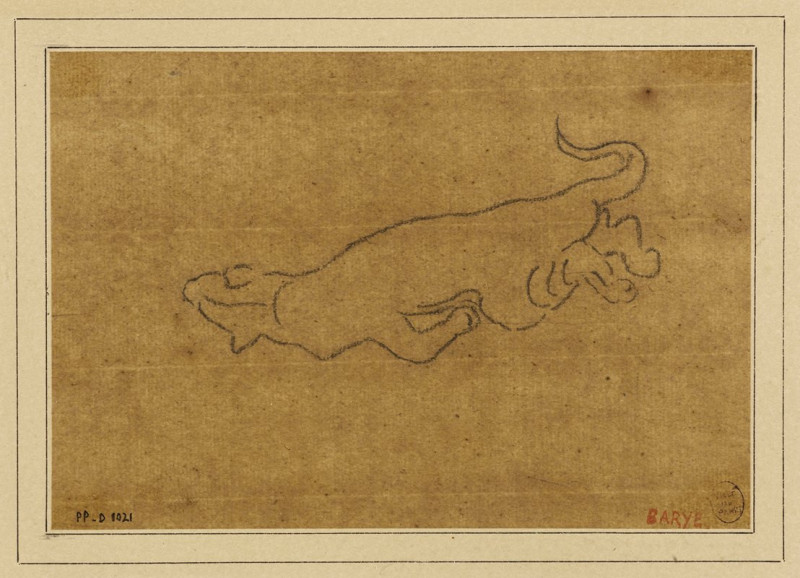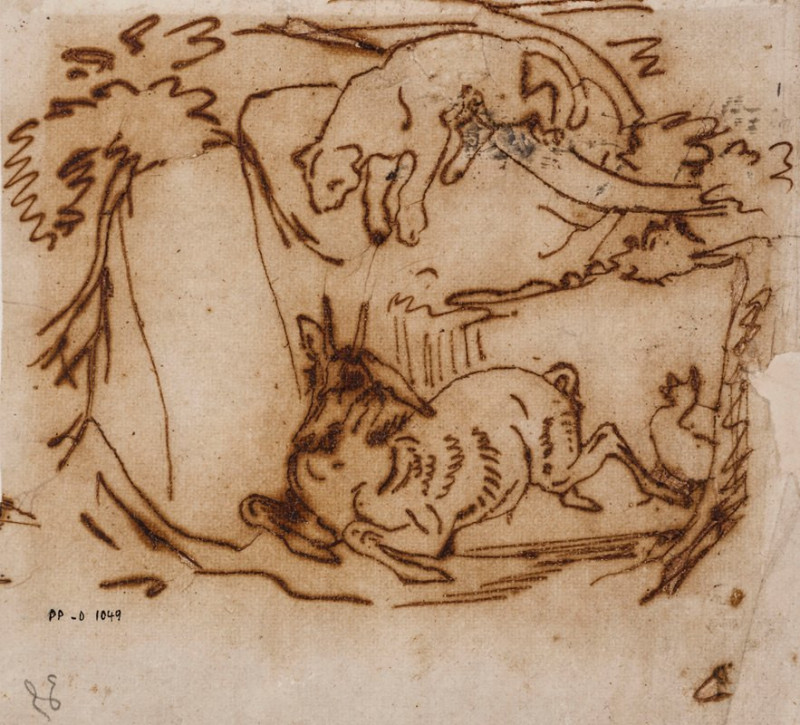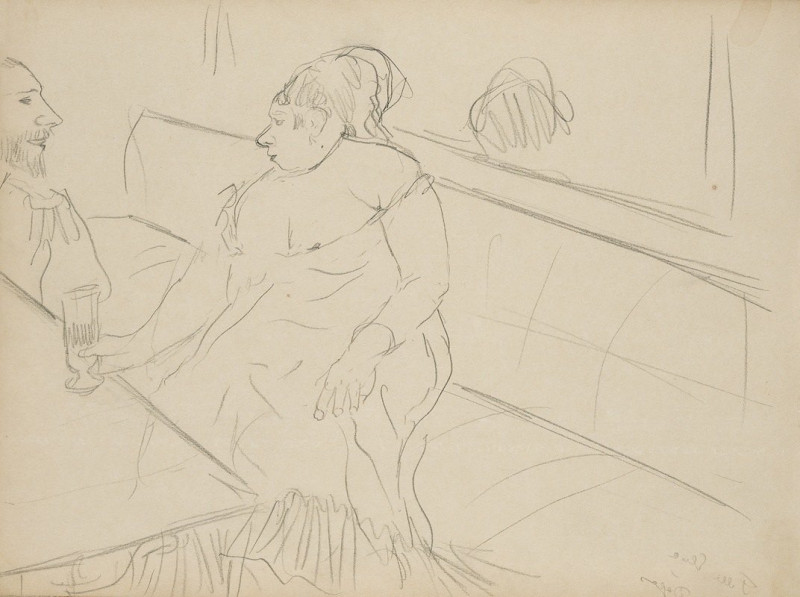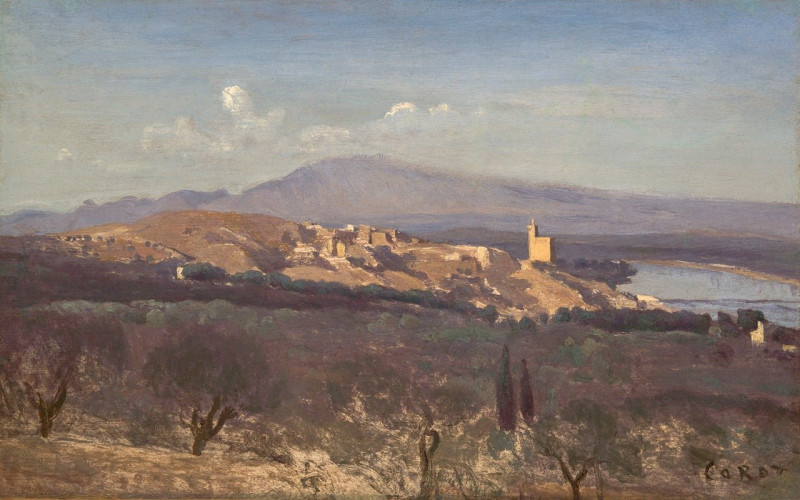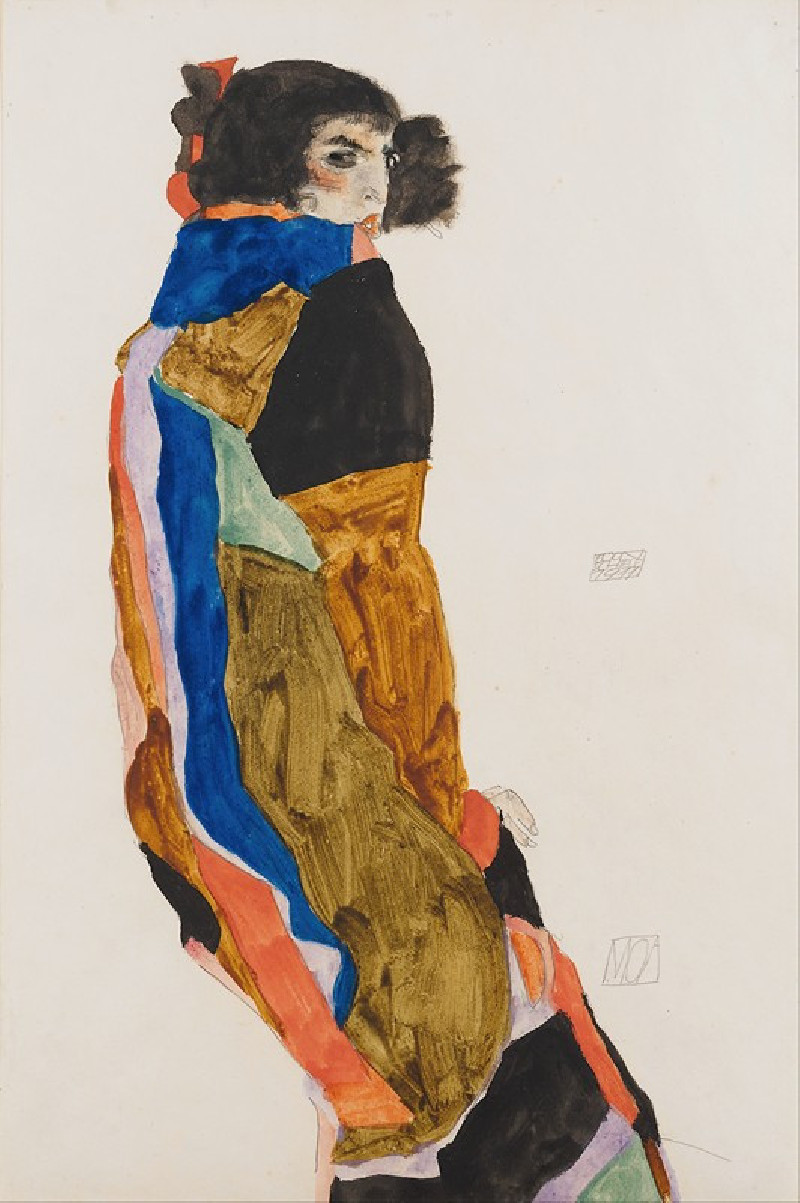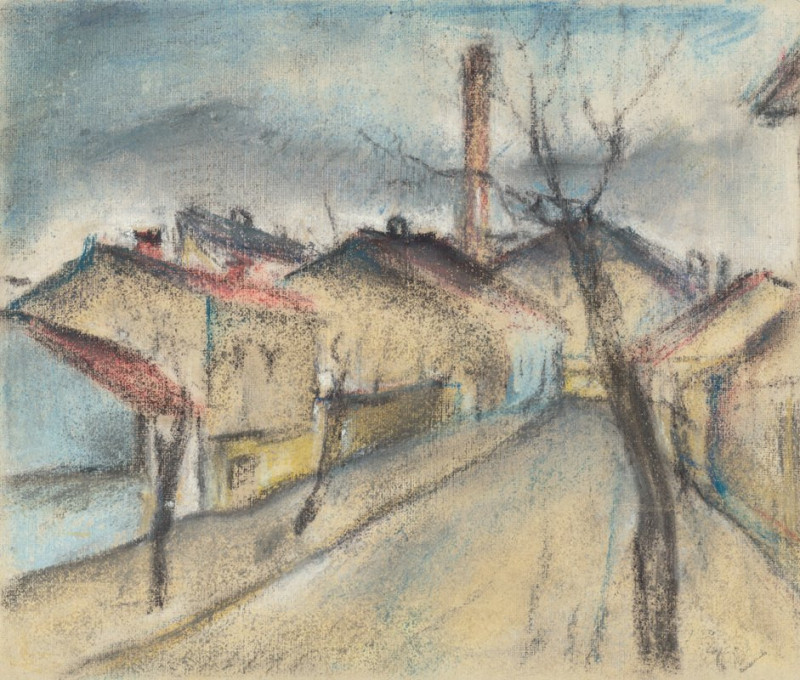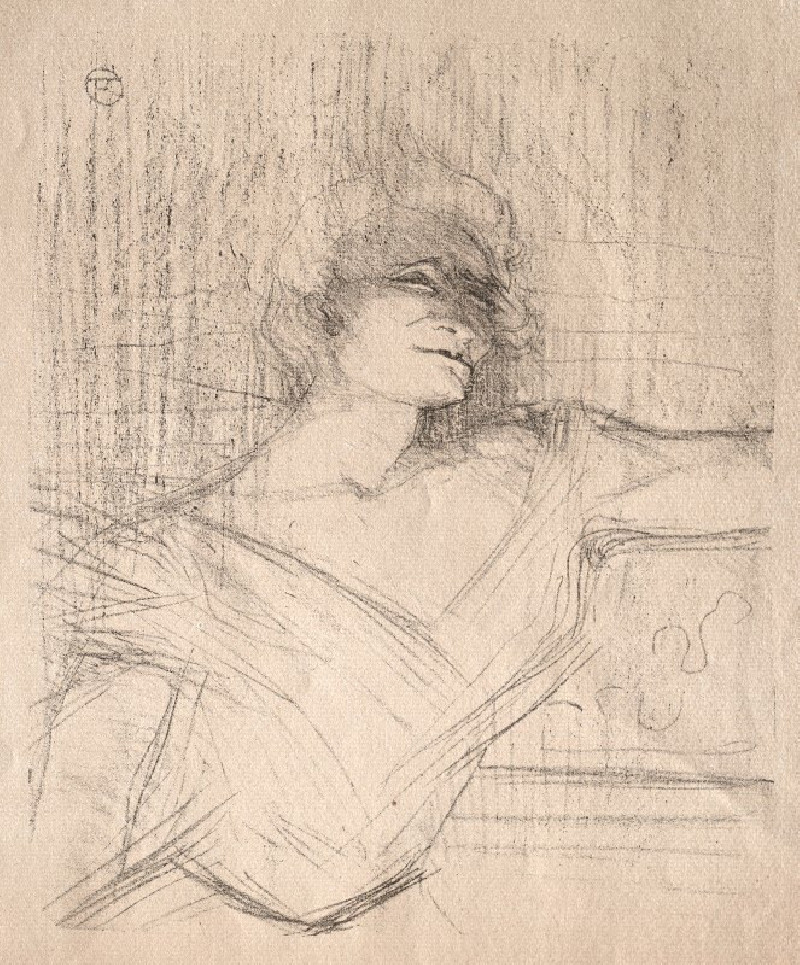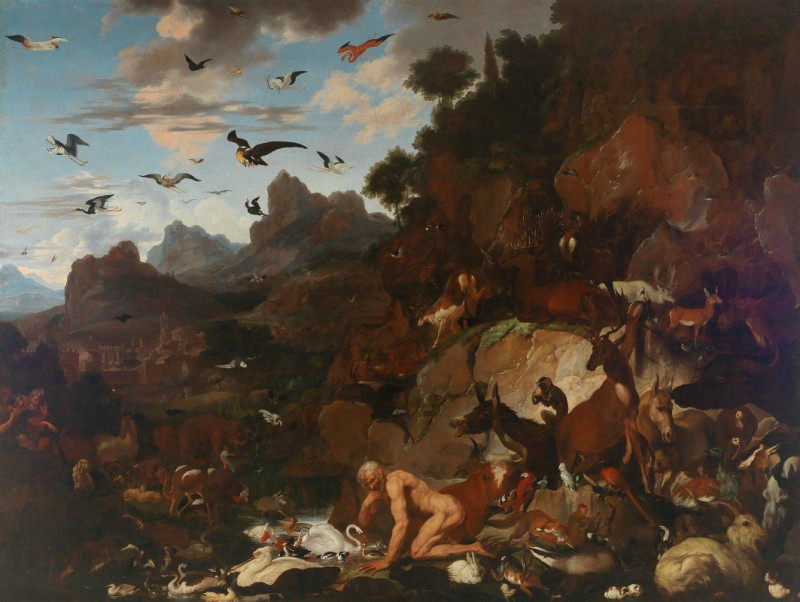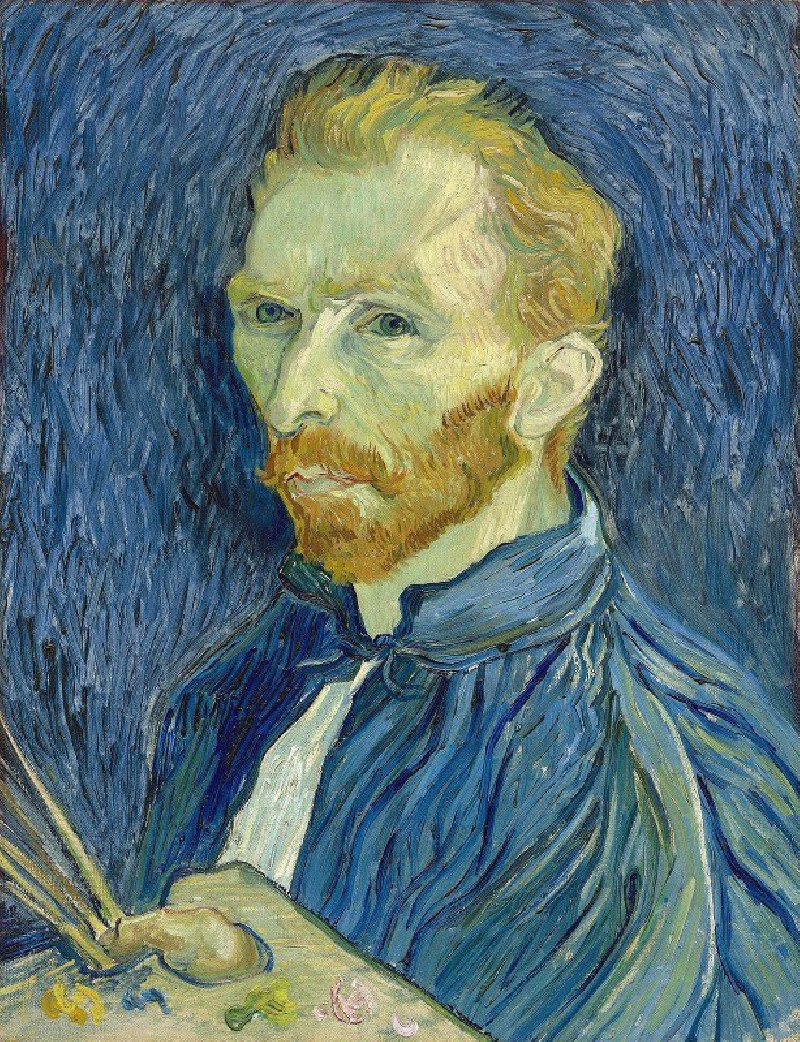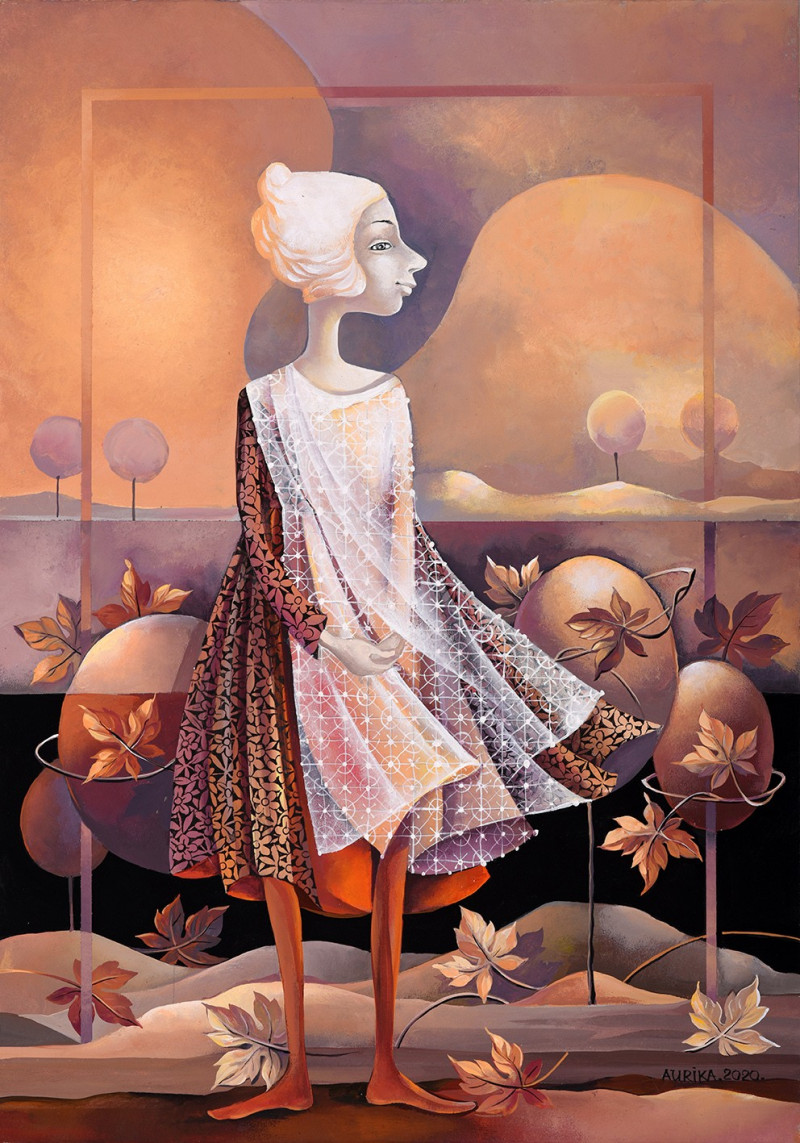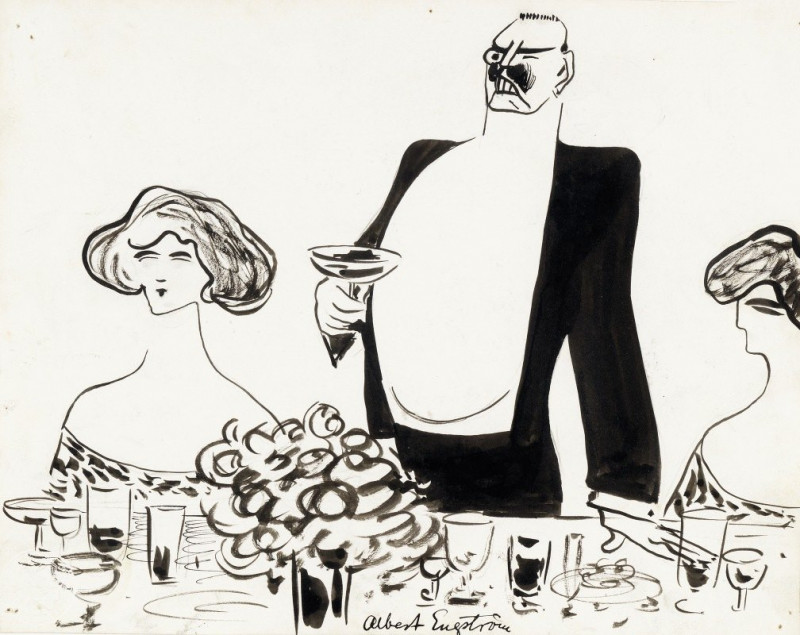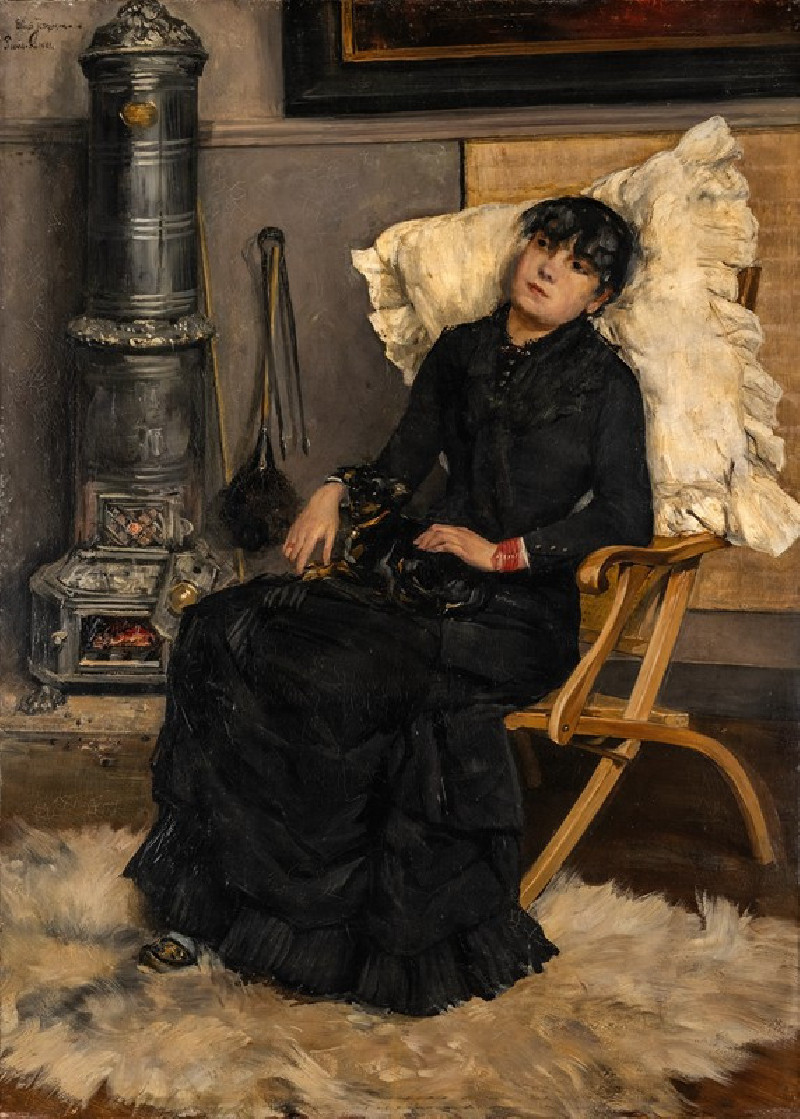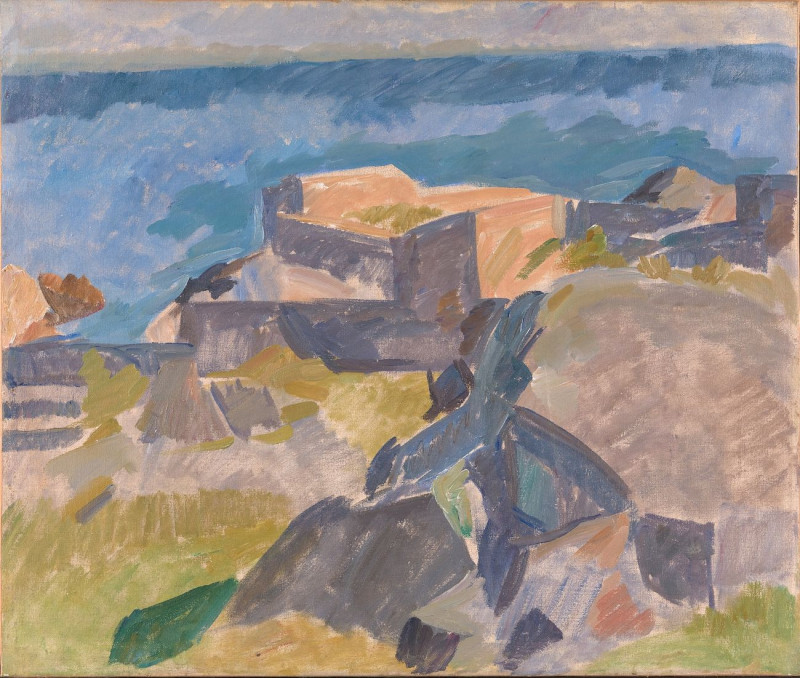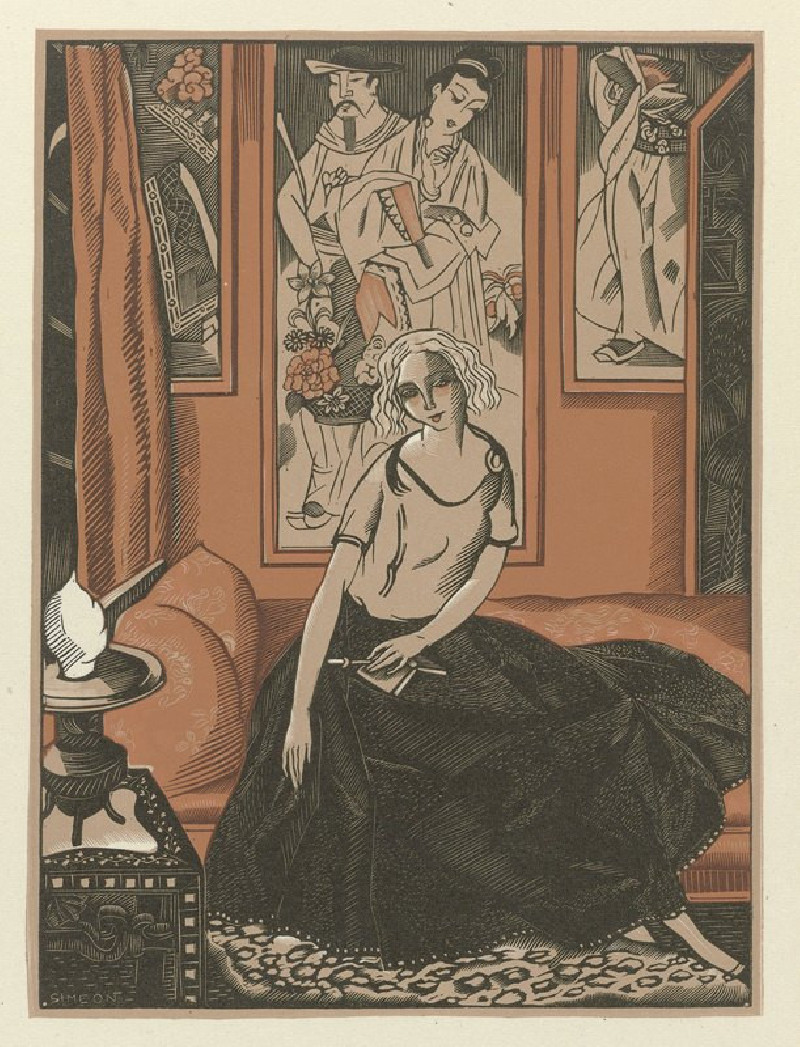Rhinocéros (19th century)
Technique: Giclée quality print
Recommended by our customers
More about this artwork
Antoine-Louis Barye, a distinguished 19th-century French sculptor and artist, showcases his remarkable ability to capture the essence of wildlife in this delicate sketch titled "Rhinocéros." This art piece demonstrates his meticulous attention to anatomical details and his passion for the natural world.The image reveals a side profile of a stoic rhinoceros standing with a strong, grounded presence. The use of soft, sketchy lines accentuates the creature's bulky form and textured skin. Barye’s expert handling of the pencil delicately portrays the folds and armor-like skin of the rhinoceros, portraying a distinct realism that brings this gentle giant to life on paper.This sketch not only highlights Barye's skills as a draftsman but also reflects his deep study and understanding of the animals he represented. "Rhinocéros" serves as a testament to Barye's devotion to naturalism and his enduring legacy in the world of animal sculpture and sketching.
Delivery
Reproductions are made to order and take 5 to 7 working days.
We send them out by courier and delivery takes another two working days.
If you need a reproduction sooner, please contact us - we can usually find a solution and produce it a little faster.
If you don't want to pay for postage, you can pick up your paintings at our galleries in Kaunas or Vilnius.
Returns
Yes, reproductions can be returned.
If you have any doubts more than 30 days after the date of purchase, please contact us - we will take the reproduction back for a refund or offer you a replacement!
We accept a maximum of two returns per customer - please note that we make reproductions to order, so please choose responsibly.
We do not refund shipping expenses.

